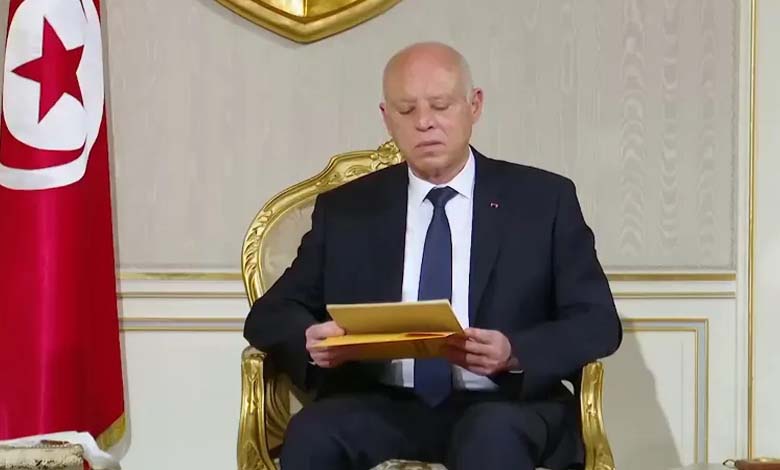Kais Saied brings back the privatization file of confiscated companies to the forefront

Saied orders the suspension of privatization (sale to the private sector) in the Central Cooperative of Agricultural Services. accusing some influential figures of deliberately. sabotaging confiscated companies and properties to sell them at low prices
Tunisian President Kais Saied called for the suspension of privatization (sale to the private sector) in the Central Cooperative of Agricultural Services. one of the confiscated companies. thus reopening one of the most outstanding files in Tunisia since the revolution. which is the “confiscated companies” file.
Saied said during a surprise visit to the company’s headquarters in the Mekrane region of Ben Arous Governorate on Sunday. “These institutions are deliberately being sabotaged in order to privatize them, not at their real value. but at the price set by those seeking to acquire them.”
He added in a video published by the official Facebook page of the Presidency. “Unfortunately, many confiscated companies have become ruins. and the people have not benefited from them.”
Last week, the president addressed the issue of confiscated properties, saying that it has been a continuous farce for more than ten years. calling for the prosecution of those responsible for seizing a number of them after they were sabotaged and wasting public money.
He stressed that the policy of “bankruptcy of confiscated properties .and then selling them at the lowest prices to specific individuals” is no longer acceptable.
Many governments in the past decade have faced criticism and even accusations of corruption due to mismanagement of confiscated companies. which used to generate significant financial returns during the previous regime.
Reports have indicated that the privatization of some of these companies to specific businessmen at very low amounts was in exchange for financial support for some ruling parties and political figures. while many forces today have called for reopening the file. and holding those involved accountable.
In July of last year, the Monitoring Observatory published a controversial report revealing that the revenues from the privatization of confiscated funds .and properties until the end of 2021 amounted to about 3,000 million dinars (one billion dollars). and that only 1,900 million dinars (650 million dollars) of it had been transferred to the state budget.
This month, the ambassador was banned from businessman Marwan Al-Mabrouk and four members of his family in a file related to suspicion of mismanagement of confiscated properties.
Ghazi Chaouachi, Minister of State Properties and Real Estate Affairs during the tenure of former Prime Minister Elias Al-Fakhfakh, who is currently detained in the case of conspiracy. said in statements when he took office that personalities among those whose properties were confiscated have relationships within the state. and capabilities to confront the public force responsible for recovering these properties.
After Closing Its Offices and Arresting Its Leaders… Has the Ennahdha Movement in Tunisia Ended?
Retired Judge Hamad Al-Sawwab announced his resignation from the Committee for Managing Confiscated Properties in 2015 due to what he described as an attack on the committee with complicity from the state.
All data and reports confirm that some state institutions and officials in the governments of the past decade contributed to harming the state’s interests by manipulating the file of confiscated properties in exchange for material or political benefits. President Saied believes that settling the file can generate significant revenues for the country. which can be used to address the current economic crisis.












